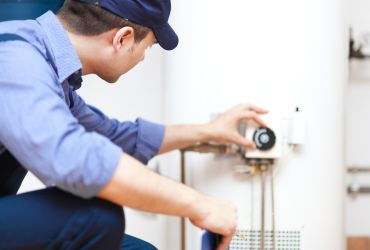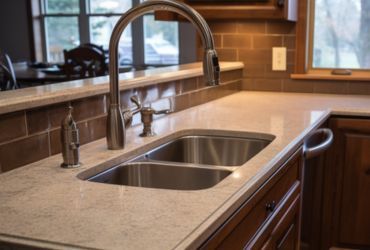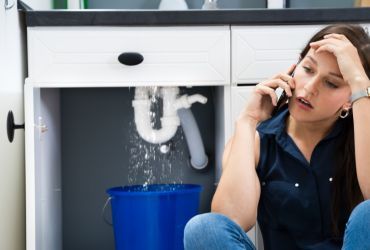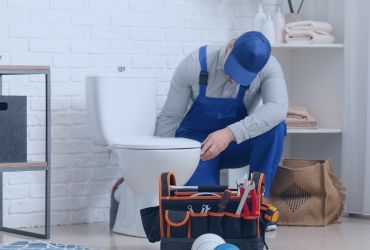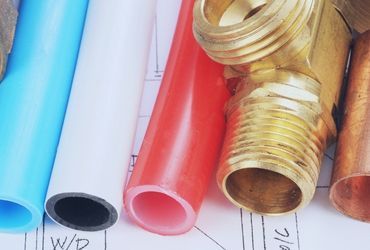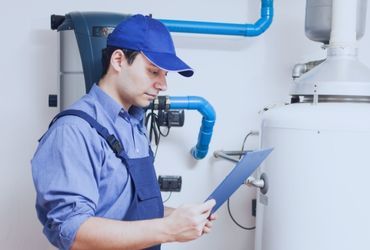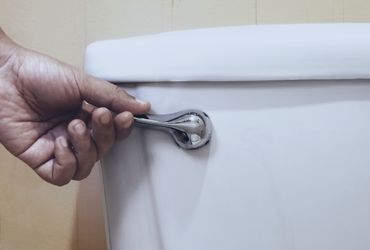Have you ever heard the phrase “prevention is better than cure”? When it comes to your home and its plumbing system, this saying rings particularly true. The truth is that a little bit of effort and maintenance can go a long way toward avoiding costly repairs in the future.
After all, your plumbing system is a vital part of your home and keeping it in good working order will save you time and money down the line. That’s why we’ve put together this guide on simple tips for keeping your plumbing system in top shape.
From regular inspections to proper disposal of waste, these tips will ensure that your plumbing system remains up-to-date and functioning as intended. We’ll also take a look at some common mistakes you should avoid when dealing with your plumbing system. So if you want to keep things running smoothly, read on for our best home maintenance tips!
Definition Of Plumbing Maintenance
Plumbing maintenance is a vital part of keeping a home in working order. It involves inspecting and caring for the pipes, drains, fixtures, and other components that make up a plumbing system. This includes checking for leaks or blockages, ensuring proper drainage and flow, and making necessary repairs or replacements with a professional plumbing company. Regular maintenance can help homeowners avoid costly repairs and reduce their risk of water damage or other plumbing-related issues.
Inspecting plumbing systems regularly is an essential part of maintaining them. Homeowners should look at all pipes, drains, and fixtures to ensure they are free of clogs or any signs of wear and tear and have a plumber perform more in-depth checks such as water heater maintenance and flushing. They should also check for signs of leaks or corrosion in the pipes as these can create significant problems if left unchecked. Additionally, it’s important to ensure that all vents are clear so that air can move freely through the system.
It’s also important to keep up with regular cleaning tasks such as clearing debris from drains and fixtures to prevent blockages. Homeowners should also consider investing in products specifically designed to protect against corrosion and rust buildup inside pipes. Scheduling professional plumber inspections every few years is another great way to maintain plumbing systems in good condition. Doing this regularly helps identify small issues before they become big problems down the line.
Preventative Measures To Take
Steer clear of plumbing headaches by taking preventative measures to keep your plumbing system in working order. Think of it as a metaphorical oil change for your pipes: just as you wouldn’t wait for your engine to seize before performing essential maintenance, don’t wait for a leak or clog to appear before addressing potential problems with your plumbing. Here are five proactive steps you can take:
- Inspect the drainage system regularly. Look out for signs of corrosion, discoloration, or other damage that could be indicative of an impending plumbing issue.
- Check all seals and joints on a regular basis and apply fresh caulking when needed.
- Test both hot and cold water pressure levels periodically and make sure they remain within normal range.
- Test faucets and fixtures for leaks, even if they appear to be functioning correctly at face value.
- It is strongly recommended that homeowners replace their water heater at least every 15-20 years with ongoing maintenance throughout its life, so plan accordingly!
Taking these steps regularly will help you identify potential issues before they become major problems – saving you time, hassle, and money in the long run! Furthermore, following preventative maintenance protocols will extend the life of your plumbing system and ensure optimal performance over time. Ultimately, being proactive about home maintenance pays off in dividends when it comes to avoiding costly repairs down the line!
The Benefits Of Regular Maintenance
Regular maintenance on your plumbing system is essential for keeping it running efficiently and preventing costly repairs. Not only does regular maintenance ensure that everything is working properly, but it can also save you money in the long run. Here are some of the benefits of regularly maintaining your plumbing system:
First, regular maintenance can help prevent larger, more serious damage to your home. If a small issue is caught early enough, you could avoid costly repairs or replacements in the future. For example, if a pipe begins to leak, a plumber can fix the problem before it causes further damage and costs more money to repair.
Second, regular maintenance helps keep your plumbing system running smoothly and efficiently. A well-maintained system can help improve water pressure and reduce water waste. This saves both time and money because water bills will be lower when a system is working properly. Additionally, if there are any clogged pipes or leaking taps, they can be fixed quickly and easily with regular maintenance visits from a professional plumber.
Finally, regular maintenance can extend the life of your plumbing system by preventing wear-and-tear over time. By taking preventive measures such as replacing old pipes or checking for any potential problems regularly, you can make sure that your plumbing lasts longer without needing to be replaced prematurely. This will save you even more money in the long run by eliminating costly repairs or replacements due to aging parts of the system.
Regular maintenance is an important part of keeping your plumbing system in working order and saving yourself time and money in the future. Investing in regular check-ups from a professional plumber now will pay off down the road when you don’t have to worry about costly repairs or replacements due to neglected upkeep.
Identifying And Repairing Leaks
“An ounce of prevention is worth a pound of cure,” goes the old adage, and this could not be truer when it comes to maintaining your plumbing system. Identifying and repairing leaks in your home can save you time, money, and frustration in the long run.
To start identifying leaks, check for obvious signs such as water stains on walls or ceilings or standing pools of water near any pipes or appliances. If you notice these signs, you should contact a professional plumber immediately. Doing so will ensure that the issue is caught early and fixed before it becomes a larger problem.
If no outward signs are present, inspect all visible pipes in your home for drips or discoloration. Additionally, test faucets and showers by running them until they reach full pressure and looking for signs of dripping or sputtering water at the fixtures. If there are any irregularities, replace the fixtures or contact a professional to assess the situation further. Remember that even small leaks can lead to bigger problems down the line if not addressed promptly.
By staying vigilant about inspecting your plumbing system regularly, you can prevent costly repairs from unexpected damage down the road. Keeping an eye out for potential problems will help you keep your plumbing system working smoothly year-round!
Inspecting The Pipes For Wear And Tear
Now that you’ve identified and repaired any leaks in your plumbing system, the next step is to inspect the pipes for wear and tear. To ensure that everything is functioning correctly, it’s important to check for signs of wear or damage on a regular basis. Here are four tips to keep your pipes in good shape:
- Look for unusual discoloration or corrosion on the outside of the pipe. If you’re seeing rust or other signs of deterioration, this could be an indication that something is wrong inside the pipe and needs to be checked out immediately by a professional.
- Check for any loose fittings or joints along the length of the pipe. Over time these can become loose due to water pressure and vibration causing them to leak or come apart completely, resulting in serious damage if not addressed quickly.
- Feel each section of pipe with your hands as you inspect it. This will help you detect any weak spots on the surface that may need extra support or reinforcement before they break apart completely.
- Listen closely for any strange sounds coming from inside your pipes, such as rattling, whistling, or banging noises which could indicate an underlying issue that needs attention right away.
If you take these steps regularly, you’ll have peace of mind knowing that your plumbing system is in good working order and won’t suffer from any unexpected problems down the line.
Clearing Clogged Drains Or Toilets
Keeping your plumbing system in working order is a necessity for any home. Clogs can be a huge hassle and can lead to more serious problems if not addressed quickly. Fortunately, there are some steps you can take to clear clogged drains or toilets without calling a professional.
The first step is to call a professional plumber to assess and correct the clogged drain. They have the correct tools and equipment to handle any plumbing problem.
TIP: To keep your plumbing system running smoothly, it’s best to act fast when you notice a clog!
Replacing Old Fixtures Or Parts
Now it’s time to move on to replacing old fixtures or parts. This is an important step in keeping your plumbing system in working order and preventing further problems. First, you’ll need to assess the condition of any fixtures or parts that are showing signs of wear and tear. If they’re cracked, damaged, or leaking, they may need to be replaced. It’s important to try to have a plumber do any replacements for you as it can be complicated and dangerous if done incorrectly.
Addressing Water Pressure Issues
Did you know that low water pressure can cost you up to 15% more on your water bills? If you’re experiencing low water pressure, it could be a sign that something is wrong with your plumbing system. Fortunately, there are several steps you can take to address this issue.
First of all, check for clogs in the pipes. These can be caused by sediment buildup or even tree roots which have grown into the pipes. If there are any clogs, use a plunger to unclog them or call a plumber if it’s too difficult for you to do yourself.
Next, check your fixtures and make sure they aren’t blocked or damaged in any way. You should also make sure that the valves controlling the water pressure are not stuck or closed in any way. This could cause the water pressure to drop significantly and lead to costly repairs down the line.
Finally, call a plumber to inspect the pipes and make sure they’re properly connected. Loose joints and broken seals can result in decreased water pressure, so it’s best to call a professional plumber right away. With these tips, you should be able to keep your plumbing system running smoothly and save money on your utility bills in the process!
Professional Plumbers And Their Services
Now, let’s look at the importance of professional plumbers and their services. Plumbing problems can quickly spiral into larger issues if not handled correctly. A trained plumber is important to identify underlying causes of plumbing problems, as well as have access to the right tools to repair them. Professional plumbers can also provide advice on how to prevent further damage and keep your plumbing system in working order.
Another benefit of hiring a professional is that they can inspect your entire plumbing system, including identifying potential issues before they cause major damage. This helps you save money on costly repairs in the future. Professional plumbers are also experienced in dealing with common issues such as clogged drains, leaking pipes, and blocked sewers. Working with a professional will ensure that these problems are resolved quickly and effectively.
Finally, many plumbing companies offer fast response times for those issues that require immediate attention. With experienced professionals, you can rest assured that any plumbing issue will be taken care of promptly and efficiently without having to worry about doing it yourself.
Home Maintenance Tips: Keep Your Plumbing System In Working Order
The value of plumbing maintenance cannot be understated. Not only can it save you expensive repairs in the future, but it can also ensure that your home is functioning properly and safely. By taking the necessary steps to keep your plumbing system in working order, you’ll be able to enjoy clean running water and peace of mind knowing that your fixtures and pipes are in good condition.
Plumbing maintenance may seem like a daunting task, but with a few simple preventative measures and regular inspections, you can easily keep your plumbing system functioning properly. If you’re ever unsure about how to take care of something or need professional help, don’t hesitate to call on the services of a reliable plumber. With their expertise, they’ll be able to quickly identify any potential problems and provide solutions so you can keep your home’s plumbing safe and running smoothly.
By following these simple tips for maintaining your home’s plumbing system, you’ll be able to ensure that all fixtures are functioning properly and that there are no leaks or other issues that could lead to costly repairs down the line. With regular maintenance and appropriate repairs as needed, you can rest assured knowing that your home’s plumbing is in good working order.
